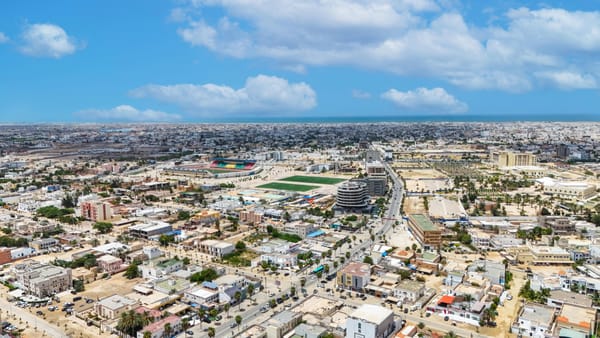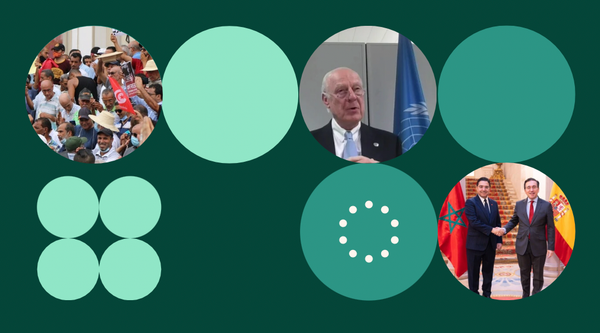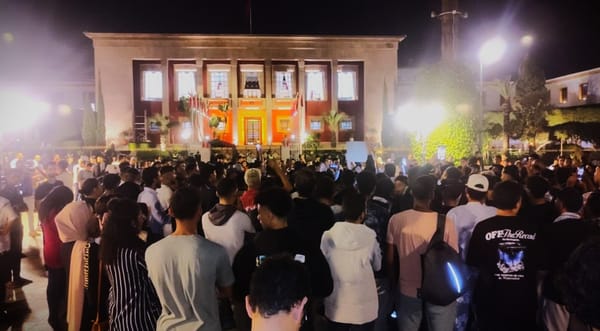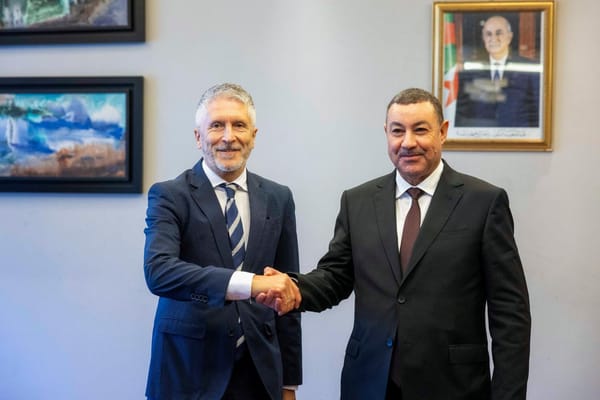Can the US Impose the Autonomy Solution for Western Sahara?
BRIEF. The imminent vote to extend MINURSO could provide the US with an opportunity to impose a resolution contemplating autonomy under Moroccan sovereignty as the only way to end the long-running conflict.
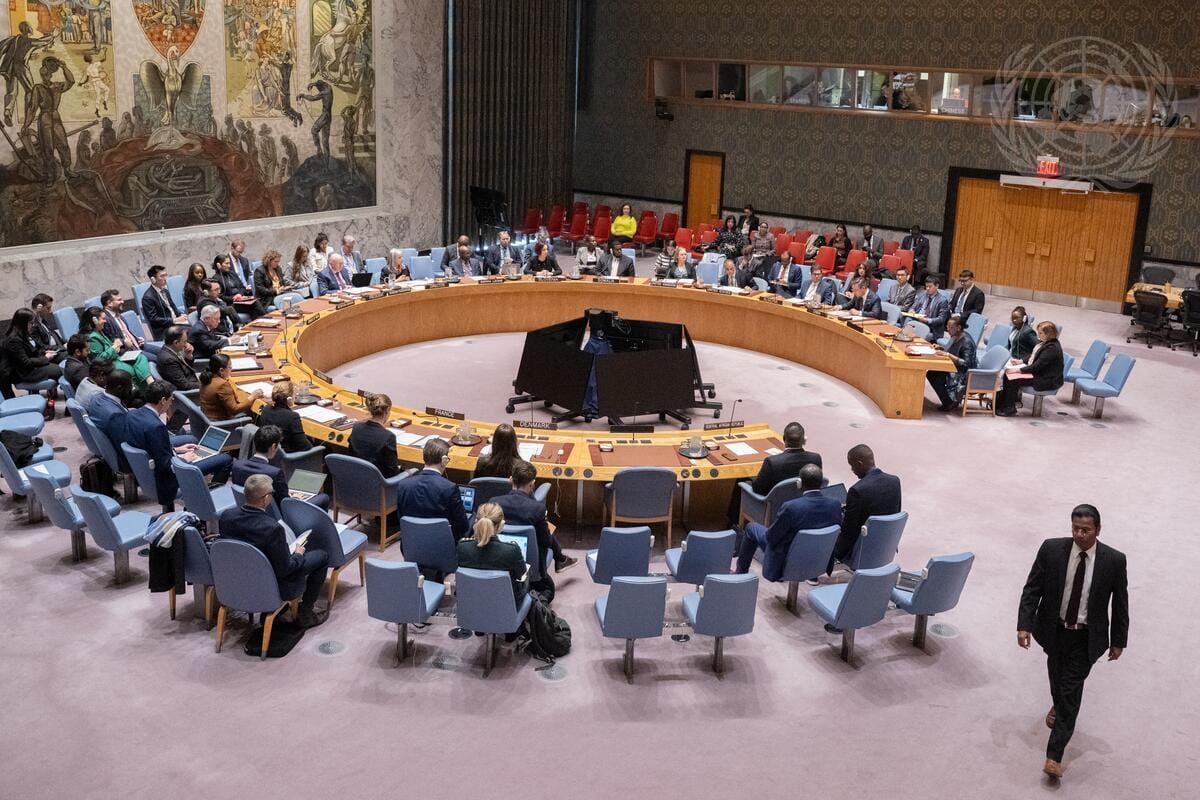
- In recent days, the US has been manoeuvring to push for a solution to the Western Sahara conflict. As the penholder of the Security Council's draft resolution on MINURSO, the US is seeking to compel the parties to negotiate on the only basis of Morocco's autonomy initiative for the territory.
- Despite Morocco gaining growing support in recent months, it does not appear that Russia or China will back Washington's proposed draft.
- Even if the resolution is not passed on its own terms, the US will attempt to limit the extension of MINURSO to a few months in order to put pressure on all parties and accelerate the definitive end to a conflict which will reach its 50th anniversary in November.
This week, the UN Security Council is expected to make a decision on extending the mandate of the United Nations Mission for the Referendum in Western Sahara (MINURSO). Established in 1991, MINURSO was given the specific mandate to verify the ceasefire between Morocco and the Polisario Front, as well as to organise and secure a free and fair referendum and announce the results. Although the referendum never took place, the mission has been renewed year after year by a Security Council resolution. This time, it seems that the US intends to use the decision on the extension to push for an end to the long-running conflict on its own terms.
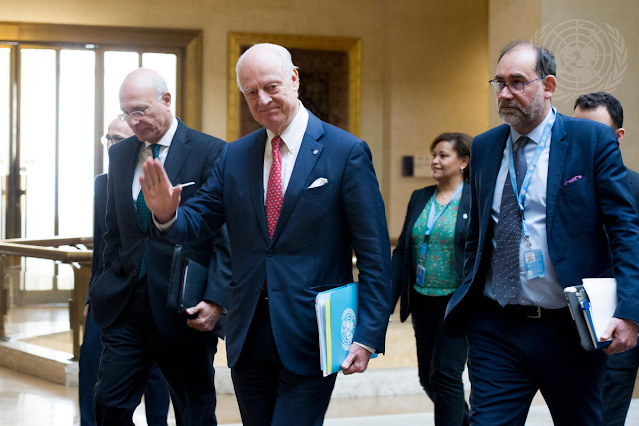
Learn more about MINURSO and the UN-sponsored process (5 Nov. 2021)
Report of the Secretary-General
As is customary, at the end of September Guterres presented his annual report to the Security Council. In it, he reflected on the 'low-intensity hostilities' that had occurred between Morocco and the Polisario on both sides of the sand wall (the 'berm') during the year, including explosions that had occurred very close to MINURSO's bases of operations. While acknowledging the cooperation received from both sides in general terms, with the exception of a few incidents, he criticised both Morocco and the Polisario Front for their human rights violations. He reflects on the complaints received by the High Commissioner for Human Rights (OHCHR) regarding the situation in the Tindouf camps, where there has reportedly been "an increasingly shrinking civic space and restrictions on Sahrawis’ rights to freedom of expression, association and peaceful assembly amid growing surveillance, harassment and intimidation", which has caused a "dire" situation. On the other hand, the report refers to the "dire conditions of detention of Sahrawi prisoners", especially those from Gdeim Izik, who "remained held in prisons outside Western Sahara". In short, the former Portuguese prime minister expressed being "deeply concerned by the situation in Western Sahara and the entrenched circumstances on the ground", while warning of a possible intensification of hostilities if the ceasefire (suspended in 2020) is not fully restored. He once again recommended extending MINURSO's mandate for an additional year, praising its stabilising work and success in "preventing a new escalation and possible regional spillover".
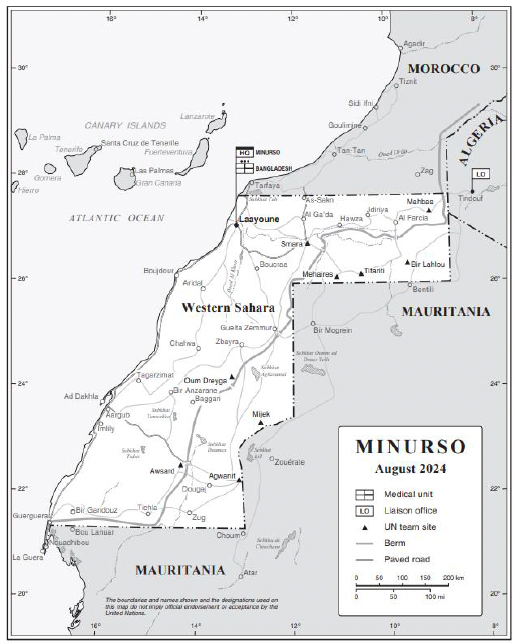
The US drafts the proposed resolution
Although it is customary for the Security Council to renew the Mission's mandate through a resolution that acknowledges the efforts of the Special Envoy and the sequence of events described by the Secretary-General, on this occasion, it seems that the US wants to exploit its position as the proposal's penholder to try and establish the basis for a permanent solution to the conflict over Morocco's autonomy plan for the territory. Indeed, in the final days of his first term, President Trump recognised Moroccan sovereignty over Western Sahara in a presidential order that Biden did not repeal and which has been reaffirmed in Trump's second term, which began in January this year.
Last week, the first draft resolution was leaked. This would renew MINURSO's mandate for a few months and urge the parties to discuss "without delay" using the Moroccan autonomy proposal "as the sole framework" for reaching a mutually acceptable solution. Washington would thus limit negotiations to achieving "genuine autonomy", thereby neutralising any other potential outcomes, including the referendum on self-determination.
The Polisario Front responded swiftly. Through its official agency, the movement refused to participate "in any political process or negotiation based on the content of the US draft resolution submitted to the Security Council" or "in any solution imposed on the Sahrawi people against their will". The movement stated that it was willing to negotiate with Morocco without preconditions, provided that the right to self-determination, as expressed through a referendum, was guaranteed. In this regard, just two days earlier, the Polisario had presented an 'expanded proposal' in addition to the one formulated in 2007. This consisted of holding a binding referendum under UN supervision, offering three options — independence, integration, or autonomy — and committing to a series of subsequent guarantees. In the event of independence, they would establish "strategic and mutually beneficial relations" with Morocco with the aim of "sharing the costs of peace". Demonstrations also took place in the Tindouf camps in Algeria, with some sources reporting that thousands of Sahrawi refugees gathered on Monday to reject the US proposal.
What could happen?
In recent hours, reports have emerged that the US has toned down its maximalist proposal in an attempt to garner sufficient support for the resolution to be passed. In the absence of a veto by any of the permanent members, nine votes in favour are needed for the Security Council to adopt a substantive resolution such as this one. That is why the discussion would be taking longer than anticipated. After several closed-door sessions last week, the final vote on the text, initially scheduled for Thursday 30th, is uncertain as it has been removed from the Security Council's official agenda for Thursday and Friday.
Of the five permanent members, only France and the United States have so far expressly recognised Moroccan sovereignty over the territory. The United Kingdom's position is similar to Spain's in that, without recognising sovereignty, it prioritises the Moroccan proposal, considering it "the most credible, viable and pragmatic basis" for resolving the dispute. Russia and China have remained silent on the issue. However, despite their proximity to Algeria, they have recently adopted more pragmatic positions, recognising the economic potential of good diplomatic relations with Morocco. Unsurprisingly, Moscow has recently moved closer to Rabat, resulting in the signing of a fishing agreement for its Atlantic waters. This has led to speculation that Russia might support Morocco's plans for the territory. However, the recent deterioration in relations between Trump and Putin regarding the war in Ukraine, coupled with the mention of the autonomy initiative as the "only basis" for negotiation, could prompt Russia to block any resolution with which it is not comfortable.
Of the non-permanent members — Algeria, Denmark, Greece, Guyana, Pakistan, Panama, South Korea, Sierra Leone, Slovenia and Somalia — only Algeria categorically rejects any initiative that does not involve a referendum or respect the right to self-determination, and would therefore certainly oppose Washington's initial draft. Denmark, Slovenia, Greece, South Korea, Panama and Sierra Leone have recently assessed the Moroccan initiative as serious or credible, or expressed direct support for it. However, this does not necessarily mean that they would support the autonomy proposal as the "only framework", as intended by the US. The rest – Pakistan, Guyana and Somalia – have taken a more ambiguous stance. Although they usually side with Morocco, they have not yet commented expressly on the autonomy initiative, or they have recently changed their opinion.
However, even if the US fails to impose the autonomy solution now, this could only result in a temporary suspension of its plans. By limiting the extension of MINURSO to six months, Washington would be putting pressure on the parties to discuss the issue quickly and giving itself more time to negotiate a new proposal with the Security Council members. Algeria, which opposes the proposal, will no longer be present in May as its term ends in December. There will also be new members who may be more inclined or who are undecided (Bahrain, Colombia, the Democratic Republic of the Congo, Latvia and Liberia). Furthermore, this would give Trump the opportunity to conclude the long-awaited "peace agreement" between Morocco and Algeria that his special envoy Steve Witkoff promised "in sixty days", which would inevitably require prior negotiation of the Western Sahara issue.
- Regardless of the resolution ultimately adopted on MINURSO, it seems unlikely that the issue of Western Sahara will be definitively resolved now. However, pressure from Trump could push the dialogue towards an agreement that is acceptable to all parties in the coming months.
- Spain is not currently a member of the Security Council and does not seem to intend to take any action that could jeopardise its excellent current relations with Morocco and Algeria. Therefore, it will not take a leading role in this regard.
- Resolving the issue of Western Sahara will not be enough to seal a "peace" agreement between Morocco and Algeria, whose disputes are rooted in many other factors. However, it is a fundamental requirement for achieving an understanding. Until a solution is found for the territory, there will be no stability in the area or prospects for regional integration, which will undoubtedly affect our foreign policy approach and the activities of our companies and NGOs.


